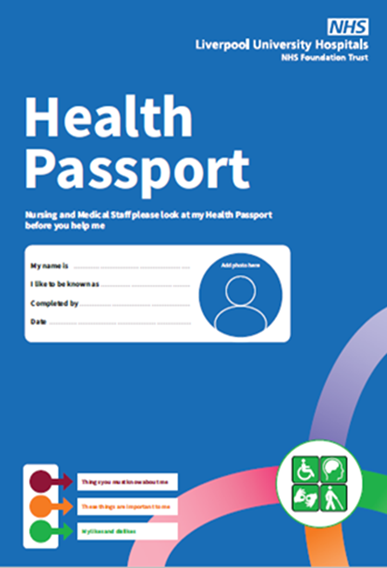Security Support
1. Your Security Team
The Security Team operates 24 hours a day across all UHL Group sites to protect staff, patients and visitors. Our uniformed security officers provide vital support and protection throughout the organisation.
- Royal Liverpool University Hospital has Security Supervisors, CCTV operators, desk officers and patrol response officers. A Police Officer is also present on Friday and Saturday nights from 22:00 to 06:00.
- Aintree University Hospital operates with Security Supervisors, CCTV operators, Tower reception officers and patrol response officers. A Police Officer provides additional support on Friday and Saturday nights from 22:00 to 06:00.
- Broadgreen Hospital has CCTV desk operators and patrol officers, with additional support provided through a mutual aid agreement with Liverpool Heart and Chest Hospital security.
- Liverpool Women’s University Hospital has CCTV desk operators and patrol officers.

Photo: Aintree Security Team won Team of the Month Award - June 2024
Security officers handle a wide range of duties including responding to violence and aggression, assisting staff, conducting initial incident investigations, premises security, staff escorts, emergency drug issues, CCTV monitoring, assisting police, access control and managing complaints.
We work in partnership with Merseyside Police through initiatives like our monthly "Cuppa with a Copper" sessions where local officers visit our sites.
2. How to Report Security Issues
If you experience or witness violent, abusive or aggressive behaviour, we encourage colleagues to take immediate action if it is safe to do so. First, inform your line manager about what happened. You should then complete a DATIX incident report within 24 hours, as this helps us better understand our staff experiences.
When completing your DATIX report, make sure you include all the key details: exactly what happened, the time and location of the incident, any witnesses who were present, and details of any injuries you or others sustained. Your manager will automatically become the handler for your case once you submit the report.
The flowchart below shows exactly what happens after you submit your DATIX report:

Once you've submitted your report, the Security Management Team will respond to your report and give guidance in line policy to the reporter and Datix handler (your manager). They'll assess what follow-up action is needed, which might include warnings for the person involved or other protective measures. If the incident involves repeat behaviour, alerts may be placed on patient records. You have the right to appeal any decisions made about your case.
Professional Development and Safety Training
Below are listed the key programmes available to support staff in managing challenging situations with confidence and compassion.
1. Behaviours of Concern Support
Led by Ged Jennings, Learning Disability and Autism Specialist Nurse, Behaviours of Concern helps staff understand challenging behaviours such as aggression, self-harm, destructiveness and disruptiveness, often seen in patients with dementia, delirium, learning disabilities, or mental health conditions.
The project emphasises that challenging behaviours usually occur when patients have unmet needs - pain, discomfort, frustration, anxiety, boredom, or lack of stimulation. Staff learn to use helpful approaches like music and activities to comfort patients, calm communication techniques, memory activities, and personal care plans using "This is Me" documents and Health Passports.


The goal is to reduce the need for security intervention, physical restraint, sedative medication, and one-to-one enhanced care by addressing the root causes of challenging behaviour through compassionate, individualised approaches.
2. Compassionate Communication Training
Led by Dr Jane Hutton, Consultant Clinical Psychologist and Professional Lead for Psychology this short e-learning is suitable for all staff to develop a deeper understanding of why compassion is so important in healthcare, how we can sustain it in challenging times, and why it always needs to start with ourselves.
The training emphasises that compassionate communication underpins everything we do in healthcare and can improve every moment of communication. Staff learn practical skills for starting conversations on the right foot, managing difficult interactions with patients and colleagues, and maintaining empathy even when feeling overwhelmed by work pressures.
The programme covers self-care techniques to help staff stay grounded, quality communication over quantity of time, and how to respond compassionately when patients or colleagues are distressed. This complements the Challenging Behaviours approach by providing the communication skills needed to connect with patients experiencing unmet needs.
Available to all staff through ESR - search for "Compassionate Communication" to book your session.
3. IKON Personal Safety Training
To support in providing safe and compassionate care, colleagues are able to undergo a Personal Safety training programme. The ‘3 Tier Personal Safety Training Approach’ is designed to help you feel safe and confident at work:

Tier 2 – Breakaway Training: Targeted at public-facing staff, a half-day course providing simple but effective techniques for safely disengaging from aggressive situations.
Tier 3 - Managing Challenging Behaviour: A full-day course for clinical staff, focusing on the safe application of clinical holds during high-stress or difficult procedures.


Colleagues can complete Tier 1 as part of their Mandatory Training.
For Tier 2 and 3, colleagues can book face to face training sessions via the Electronic Staff Record (ESR) system. Teams are supported through bespoke sessions tailored to their working environments, making the training responsive to the challenges staff face day to day.
Full booking details can be found here.